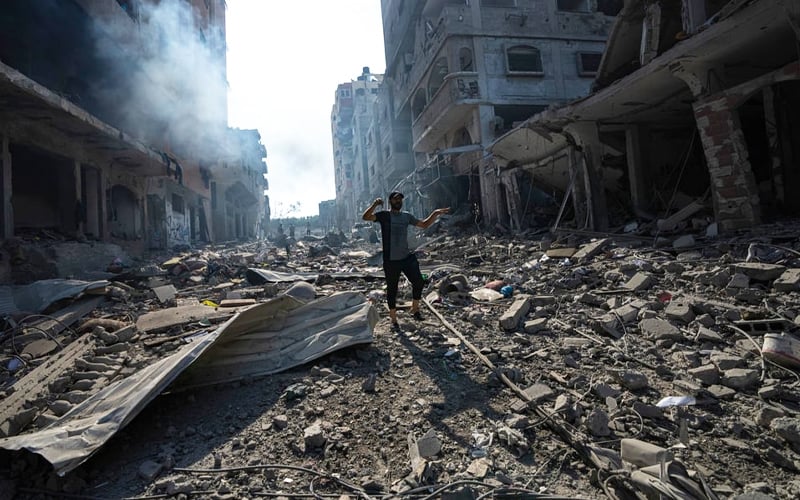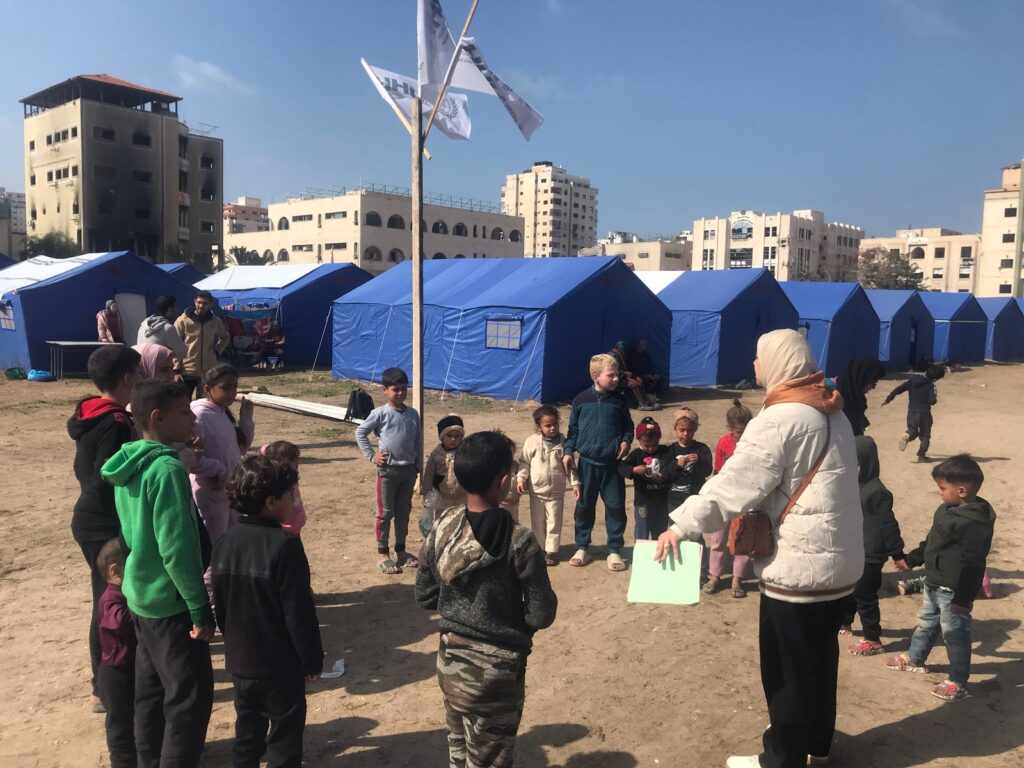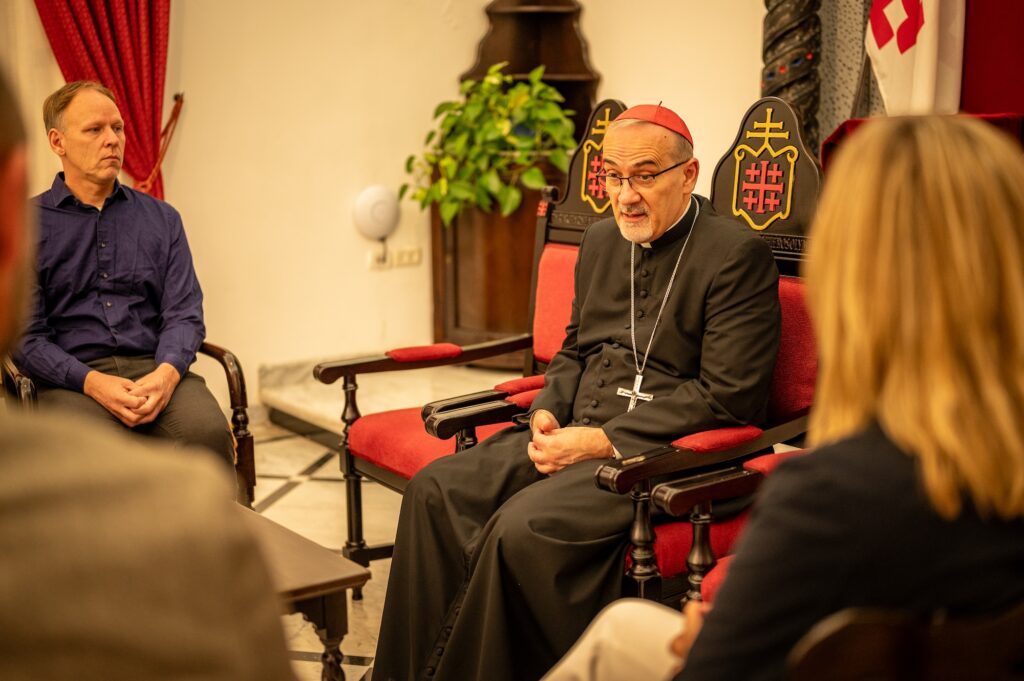The world knows that an unprecedented humanitarian catastrophe is unfolding in Gaza. More than 1.7 million people have been displaced, and 91% of the population is experiencing acute food insecurity. The desperation grows by the day.

Cordaid is providing emergency relief in Gaza with partners such as Caritas Jerusalem and DanChurchAid (DCA). These organisations have dozens of staff in the heart of the conflict zone, distributing food and water, providing medical aid, and offering psychological support, under appalling conditions.
We spoke with our humanitarian expert, Laurens den Dulk, who collaborates closely with colleagues on the ground, about the harrowing situation and the moral duty to speak out.
Food Shortages
‘Over the past three months, virtually no food has entered Gaza,’ says Den Dulk. ‘There were still some reserves in warehouses, which were distributed among aid organisations. But as the scarcity worsened, rations had to be halved or were distributed less frequently. It has become a matter of survival.’
Recently, a new aid initiative—the Gaza Humanitarian Foundation, established by Israel and the US—has begun allowing small numbers of trucks into the area. ‘But the volume is far too low,’ Den Dulk states. ‘What’s more, it’s completely unclear what exactly is coming in, who is distributing it, and under what conditions. This violates international humanitarian law, which dictates that emergency aid must be provided unconditionally and independently.’

A Climate of Fear
According to Den Dulk, a fearful atmosphere hangs over local partner organisations in the region. ‘There is a very real concern that Gaza might soon cease to exist altogether. That the entire population will be driven out. That means we would be witnessing an ethnic cleansing of two million people. There are rumours that Egypt is preparing to take in hundreds of thousands of Palestinians in the Sinai Desert. Other reports suggest deportations to Saudi Arabia or Jordan. But the idea that Gaza could vanish is so grotesque that people can hardly imagine how one would even begin to prepare for it.’
The Silent Majority
As this unfolds before the world’s eyes, Den Dulk is struck by the relative silence in the Netherlands. ‘Yes, there have been demonstrations, and some organisations have spoken out. But there’s still a silent majority. People are afraid to take sides, fearing they will be drawn into a political debate. But this shouldn’t be about politics—it should be about humanity.’
Even aid organisations are grappling with this issue. Nevertheless, Den Dulk urges everyone to speak up. ‘It’s not enough to sympathise in silence. Speak out! Not necessarily in support of one side or against another, but against what is happening here: the deliberate starvation of a population, the shooting of crowds trying to reach aid convoys, the wilful denial of human suffering.

‘International humanitarian law was created precisely to prevent situations like this. If starving people at a food distribution point are being shot, or if aid workers are killed, humanitarian law is failing.’
A ‘man-made’ crisis
This is not an ‘ordinary’ humanitarian crisis, says Den Dulk, who has witnessed many during his years as an experienced coordinator of emergency relief projects. ‘This crisis is man-made. If the borders were opened tomorrow, the famine would end. It’s that horrifyingly simple. The only correct response is: this must not be allowed. We must continually remind ourselves of this important principle. Again and again.’